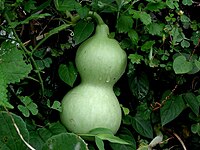
Bioaccumulation and human health risk assessment of chromium and nickel in paddy rice grown in serpentine soils
Sign Up to like & getrecommendations! Published in 2021 at "Environmental Science and Pollution Research"
DOI: 10.1007/s11356-020-12176-y
Abstract: The natural abundance of Cr and Ni in serpentine soils is well-known, but the food safety of rice grown in these hazardous paddy soils is poorly understood. The study evaluated the bioaccumulation of chromium (Cr)… read more here.
Keywords: serpentine; rice; rice grown; human health ... See more keywords

Assessing nickel tolerance of bacteria isolated from serpentine soils
Sign Up to like & getrecommendations! Published in 2019 at "Brazilian Journal of Microbiology"
DOI: 10.1007/s42770-019-00111-4
Abstract: Serpentine soils present unique characteristics such as a low Ca/Mg ratio, low concentration of nutrients, and a high concentration of heavy metals, especially nickel. Soil bacterial isolates from an ultramafic complex located in the tropical… read more here.
Keywords: tolerance; serpentine soils; bacteria isolated; tolerance bacteria ... See more keywords

Asian dust increases radiocesium retention ability of serpentine soils in Japan.
Sign Up to like & getrecommendations! Published in 2019 at "Journal of environmental radioactivity"
DOI: 10.1016/j.jenvrad.2019.03.028
Abstract: Radiocesium (RCs) is selectively adsorbed on interlayer sites of weathered micaceous minerals, which can reduce the mobility of RCs in soil. Therefore, soils developed from mica-deficient materials (e.g. serpentine soils) may have a higher risk… read more here.
Keywords: micaceous minerals; serpentine soils; asian dust; japan ... See more keywords